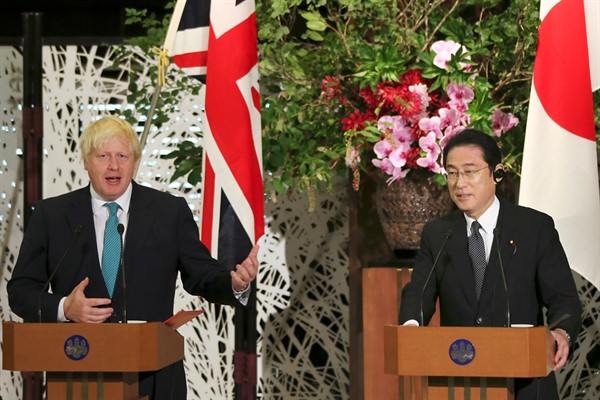Ever since the 2016 referendum on Brexit, the U.K. has been busy reimagining its place in the world. Now, with the umbilical cord between the U.K. and the European Union finally cut, London will have to put into practice its long-stated ambitions for a “Global Britain.” The British government’s Integrated Review of Security, Defence, Development and Foreign Policy, published on March 16, offers the first official and comprehensive expression of how it plans to do so.
The Integrated Review has a great deal of interest for cyber-watchers. For example, the word “standards” appears more times in the document than “China.” (More on that in a future column.) Another aspect of the Integrated Review, though, is its “tilt” toward the Indo-Pacific. While the planned deployment to the region of the U.K.’s aircraft carrier, HMS Queen Elizabeth, is a newsworthy piece of theater, there is a lot more complexity beneath the surface of this eastward pivot.
One feature, in particular, is the U.K.’s relationship with Japan. The Integrated Review describes Japan as “one of our closest strategic partners, including on security, and we are committed to deepening this partnership.” How to do so has been the subject of much recent examination, including at Chatham House, which has organized two events in the past four months exploring ways to enhance the U.K.-Japan relationship on security. Just last week, we also published a collection of essays on the subject titled, “Security at the Frontier,” to which I contributed.

